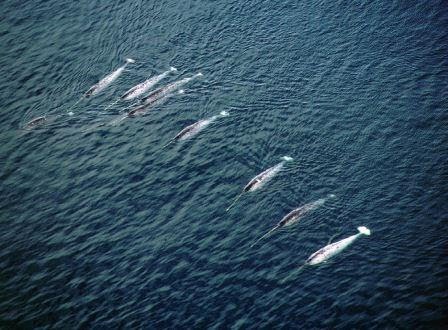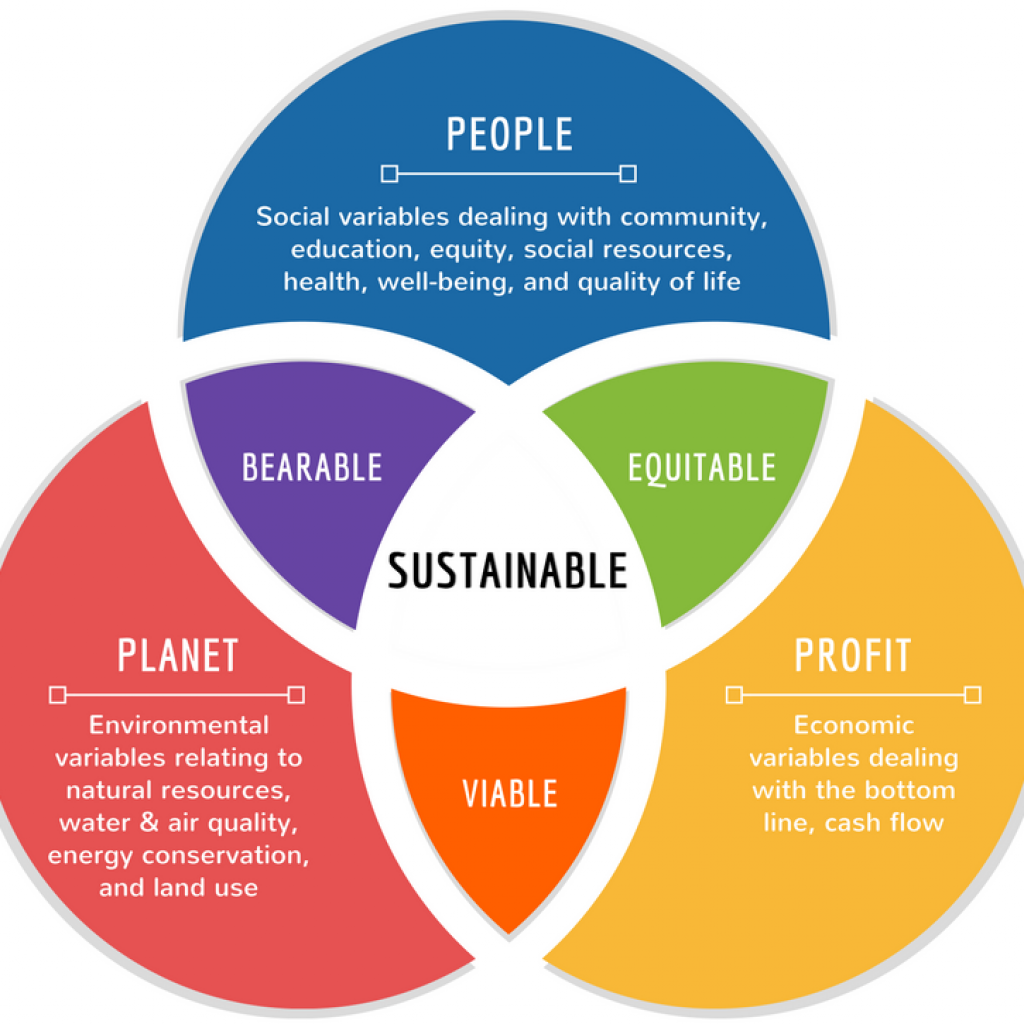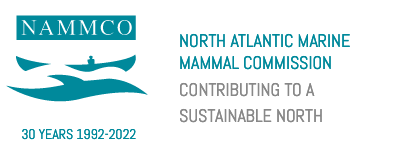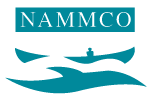NAMMCO Receives Ideas from Interdisciplinary Students
In June 2020, NAMMCO participated in the conference Interdisciplinarity, Sustainability and Expert Disagreement: Uncovering philosophical biases in scientific controversies. This conference was hosted by the Norwegian University of Life Sciences (NMBU) and organised by Rani Lill Anjum and Elena Rocca from the Center for Applied Philosophy of Science (NMBU CAPS). It was offered as part of a course on interdisciplinarity and expert disagreement in sustainability research.

The aim of the event was to demonstrate and discuss how scientific controversies concerning sustainability often involve different philosophical biases and positions concerning scientific theory, methods, models and norms. This was achieved through presentations on a range of real-life case studies.
NAMMCO’s Scientific Secretary Fern Wickson gave a presentation on the complexities of providing advice for sustainable management of narwhals in East Greenland. The presentation was based on recent work on the topic within the Ad hoc Working Group on Narwhal in East Greenland and the NAMMCO Scientific Committee. Fern particularly highlighted the challenges in this case of navigating disagreements between scientists and indigenous communities and balancing the environmental, social and economic aspects of sustainability.
Although this was initially planned as a face to face event, in the wake of the global pandemic, the conference and all the presentations and discussions were moved online. This means that the presentation, as well as the comments from and discussion with the students on the day, are also now available online and can be found here.
Several of the students actively engaged in the discussion following the presentation and a select group of them (from Norway, Russia and the Netherlands, taking degrees in International Environment and Development Studies, Innovation Management, and Agroecology) followed up by writing and sending a submission to NAMMCO. This submission summarised the group’s ideas for how NAMMCO could approach some of the challenges associated with this and similar cases. Several of these ideas proposed interesting new ways of working that might be used as inspiration for the organisation as it continues to explore the best way to bring together science and user knowledge.
The submission from the students began by highlighting that they saw NAMMCO as a “builder of bridges between stakeholders”. They also emphasised the importance of challenging the prevailing perception that scientific knowledge was the ultimate authority and other types of knowledge were supplementary. Going on to argue that the case in question demonstrated how different epistemologies (theories of knowledge) influence how data is collected and interpreted, they outlined some alternative ways for NAMMCO to consider how to approach knowledge generation, sustainability assessment and decision-making. A selection of their ideas deemed most pertinent for NAMMCO are outlined in more detail below.
Proposals for knowledge generation
One of the things the students suggested was that NAMMCO investigate ways that the indigenous communities of East Greenland may be more directly involved in the scientific research that affects them. One of their suggestions here was working towards joint research design, in which scientists and local communities would come together to discuss the knowledge needs and how this knowledge may best be generated. They also advocated for enhanced training and support for local communities to be more directly involved in data collection, as well as an increased use of students.
In addition to enhancing the cooperation between natural scientists and local community members, the students also suggested that ethnographic research be carried out to generate a better understanding of social, cultural and economic factors. They specifically proposed that NAMMCO’s advisory process would benefit from knowing the narwhal quota deemed to be sufficient for subsistence purposes, as well as an estimation of how long populations may persist if harvesting was conducted at this rate.
Proposals for sustainability assessment

In considering the assessment of sustainability, the students proposed that NAMMCO clearly define how it interprets the term sustainability and outline how it handles and balances the demands of meeting the triple bottom line – i.e. the environmental, economic and social dimensions of sustainability. The students also encouraged NAMMCO to investigate the models available for generating management advice that incorporate an assessment of all three dimensions of sustainability.
To help inform these holistic forms of sustainability assessment, the students specifically highlighted the importance of NAMMCO working to generate and include knowledge on aspects of social and economic sustainability. For example, in the case in question, this included the importance of knowing the specific social and economic impacts that reducing narwhal quota to zero would have on local communities, as well as the possibilities available for alternative sources of livelihood.
Proposals for the decision-making process
The students suggested that NAMMCO move away from a “linear” and compartmentalised advisory process, in which indigenous and scientific knowledge are taken into account at different stages of the advisory process, and towards creating opportunities for these knowledges to be brought together at an early stage in the advisory process. This included finding ways in which traditional knowledge could be a more direct input into the work of the Scientific Committee, as well as the creation of new processes where all the different stakeholders could meet. They proposed, for example, the use of a roundtable method where all stakeholders could be brought together and asked to share their goals, priorities, views of nature, concepts of sustainability, ethical beliefs etc. They also suggested the use of visioning exercises to help develop a common vision for conservation across diverse stakeholder positions and beliefs.
Participating in this online conference and engaging with the students has been an enriching experience. The possibility to receive feedback on NAMMCO’s approach to providing management advice from people with a younger age profile and a different set of backgrounds than are typically involved in the advisory processes, offered interesting and inspiring new ideas to consider. Thanks to the conference organisers for the opportunity to be involved and to the students for their active engagement.
NAMMCO welcomes further conversations on how management advisory bodies can best meet the challenges associated with integrating social, economic and environmental aspects of sustainability assessment and doing this in a way that combines traditional knowledge with the best available science.


